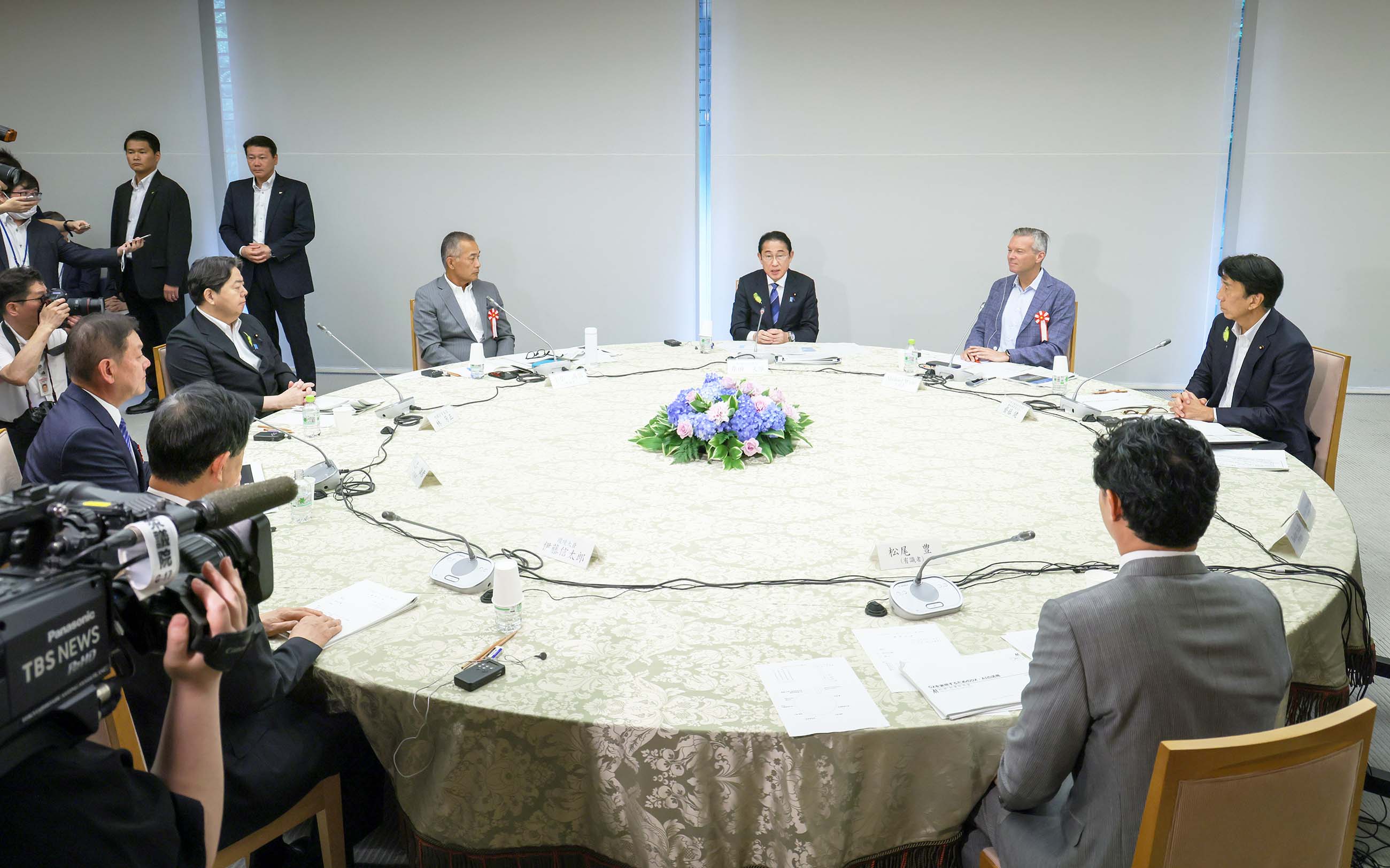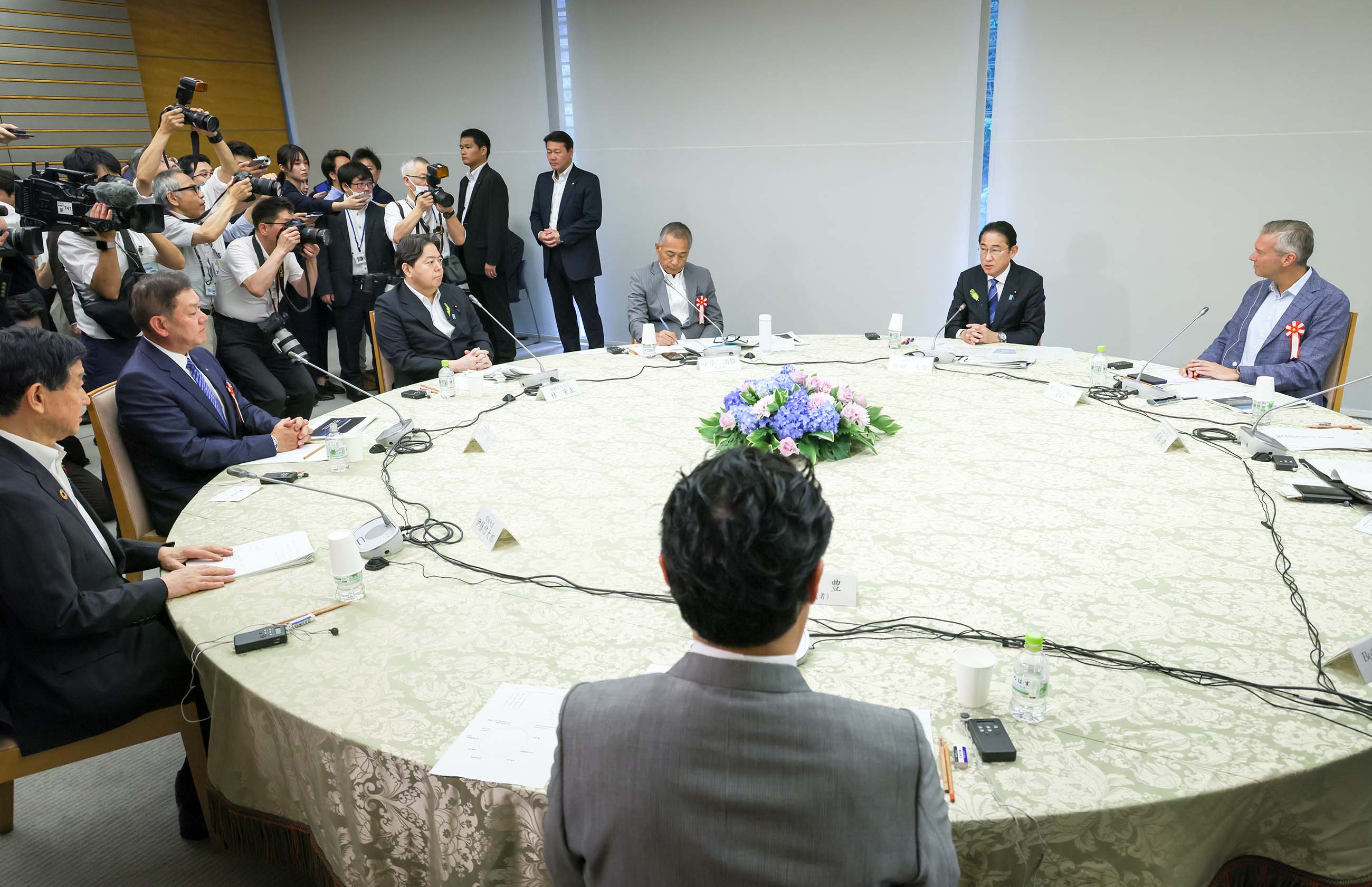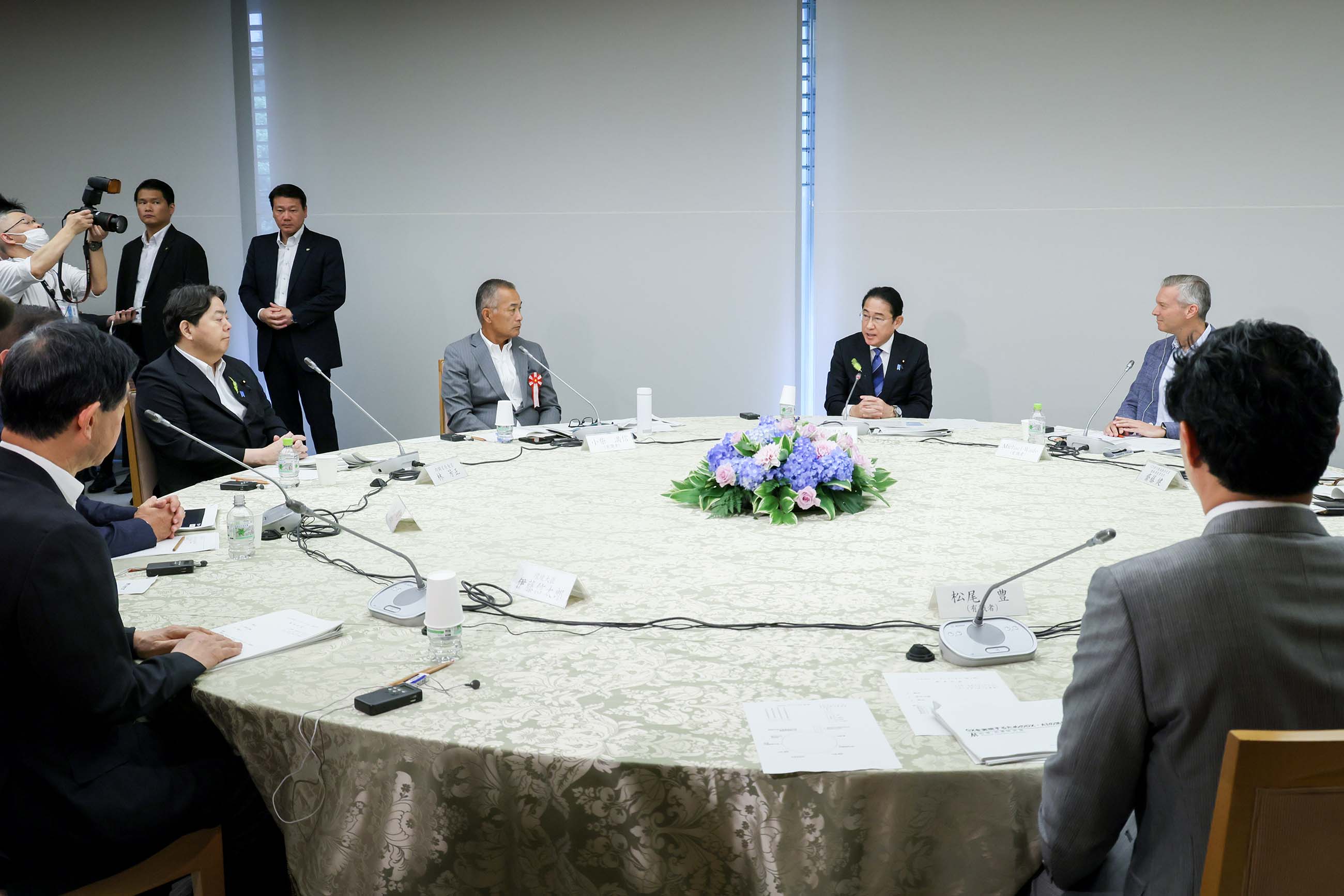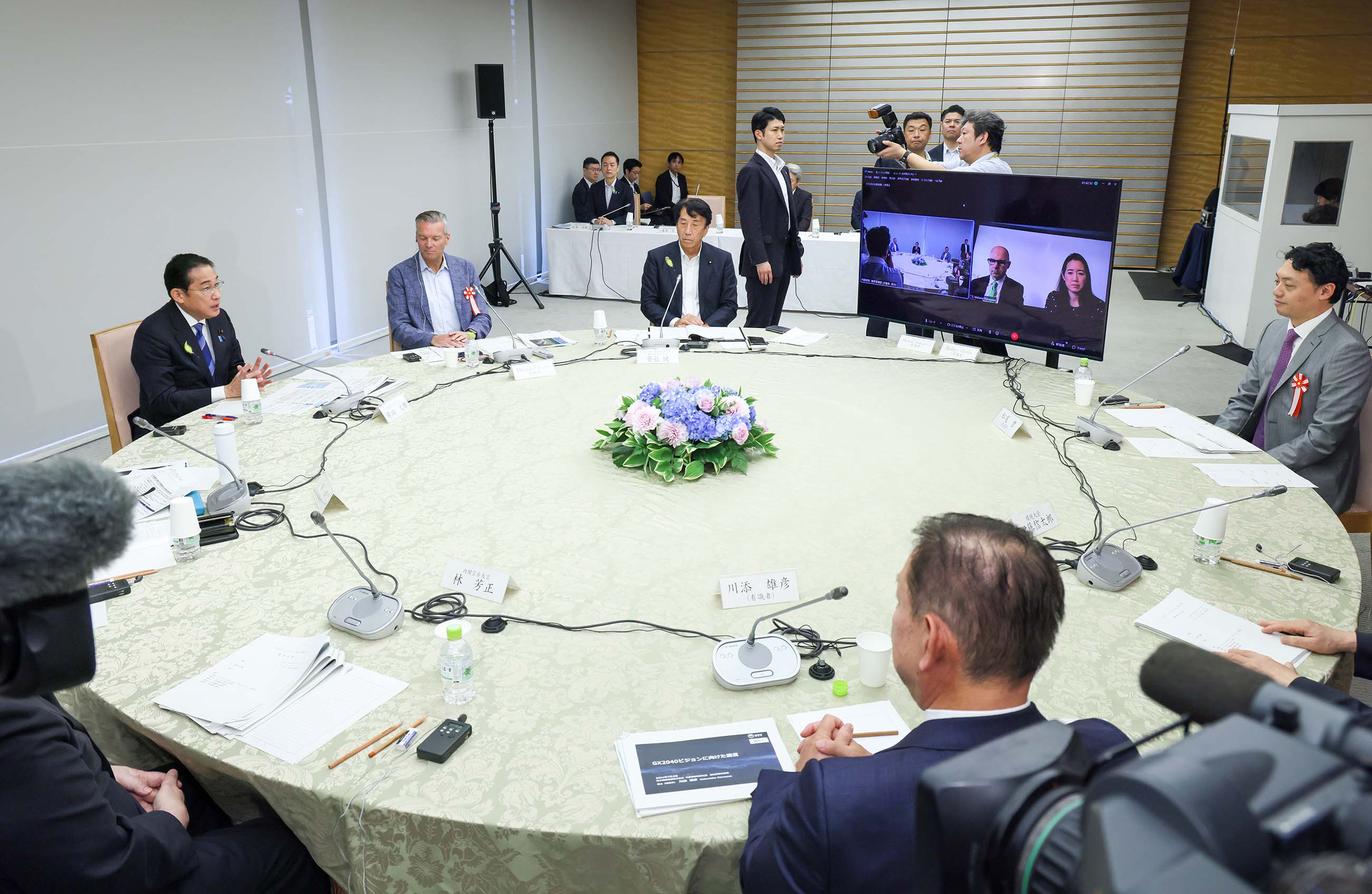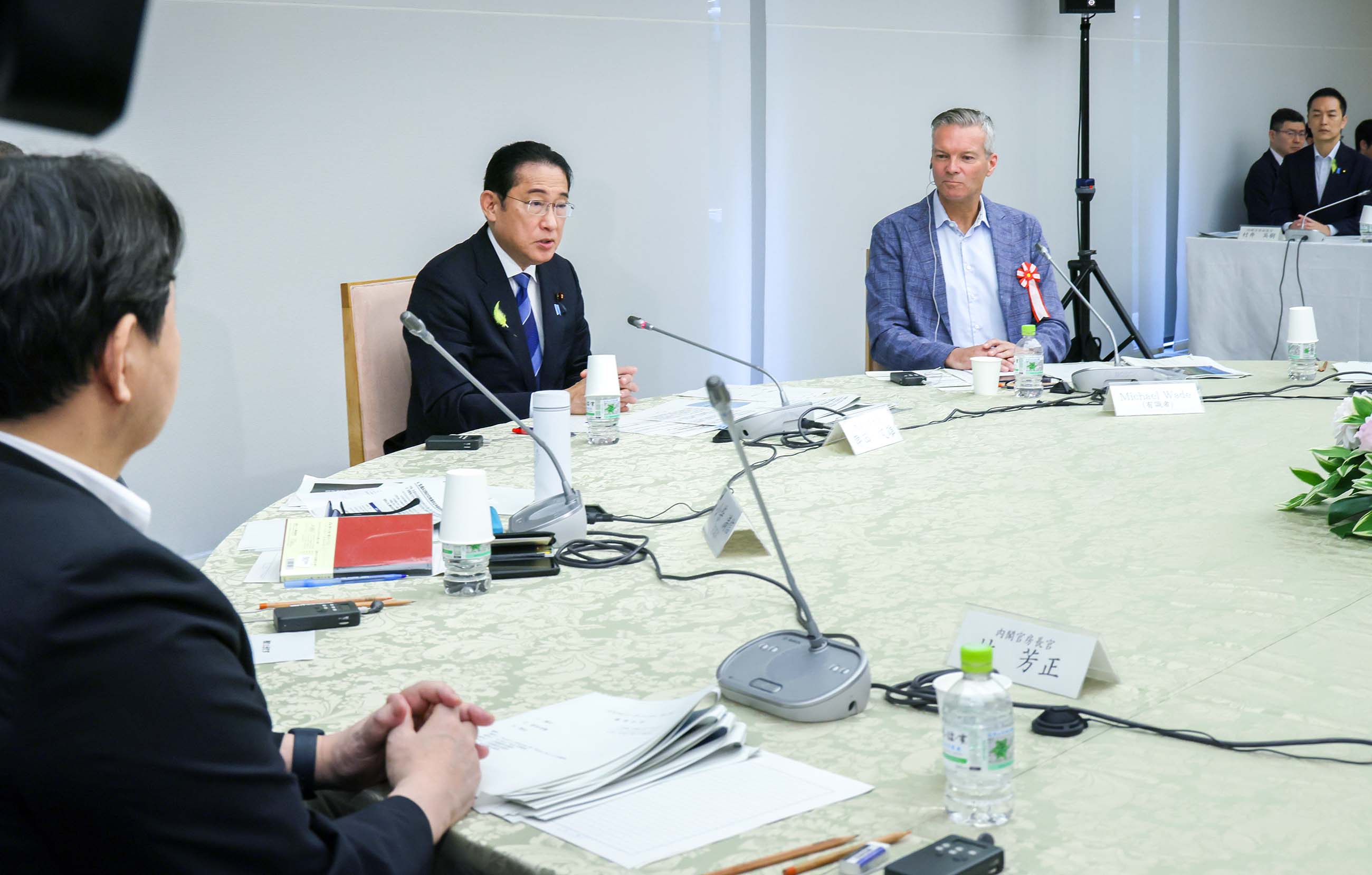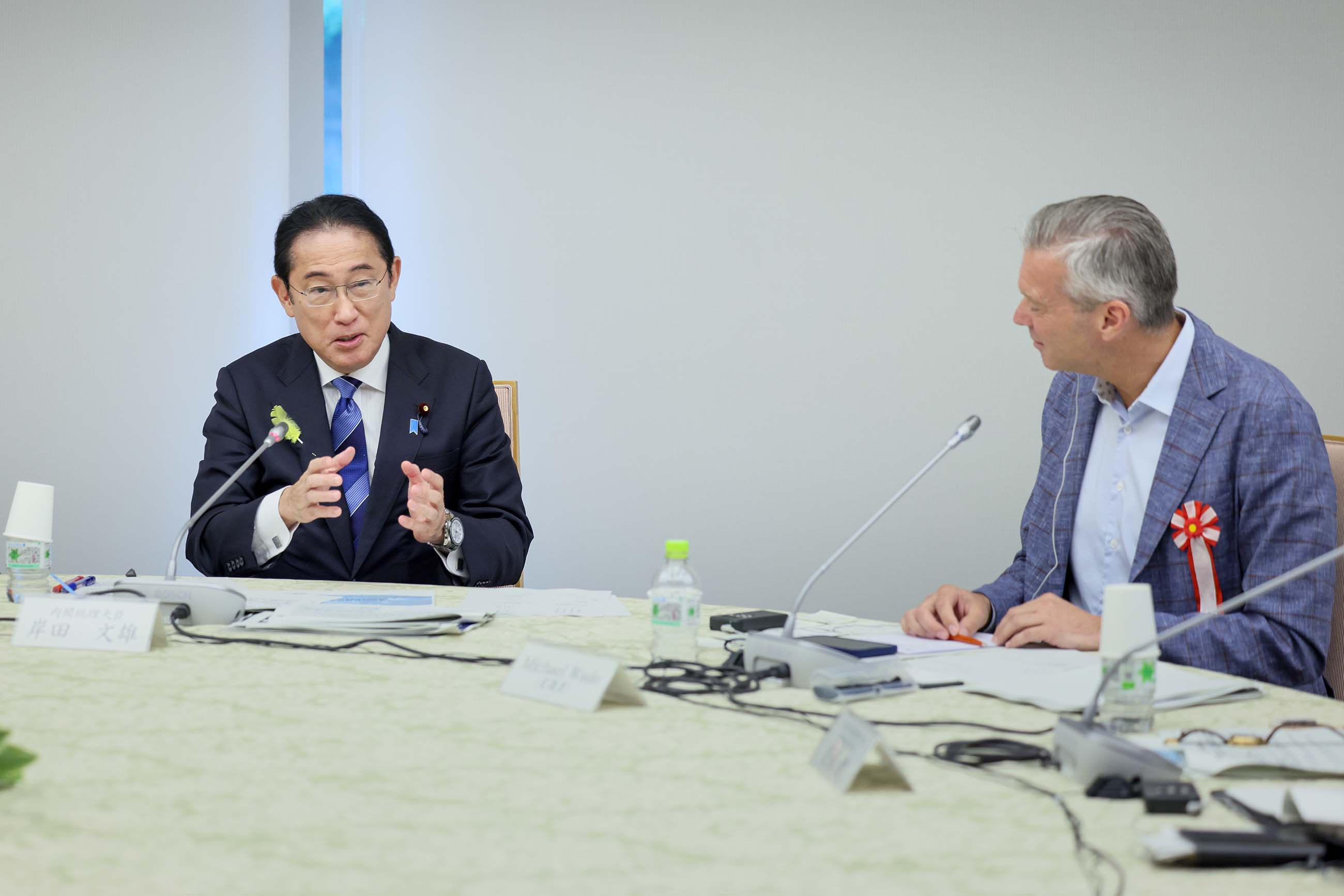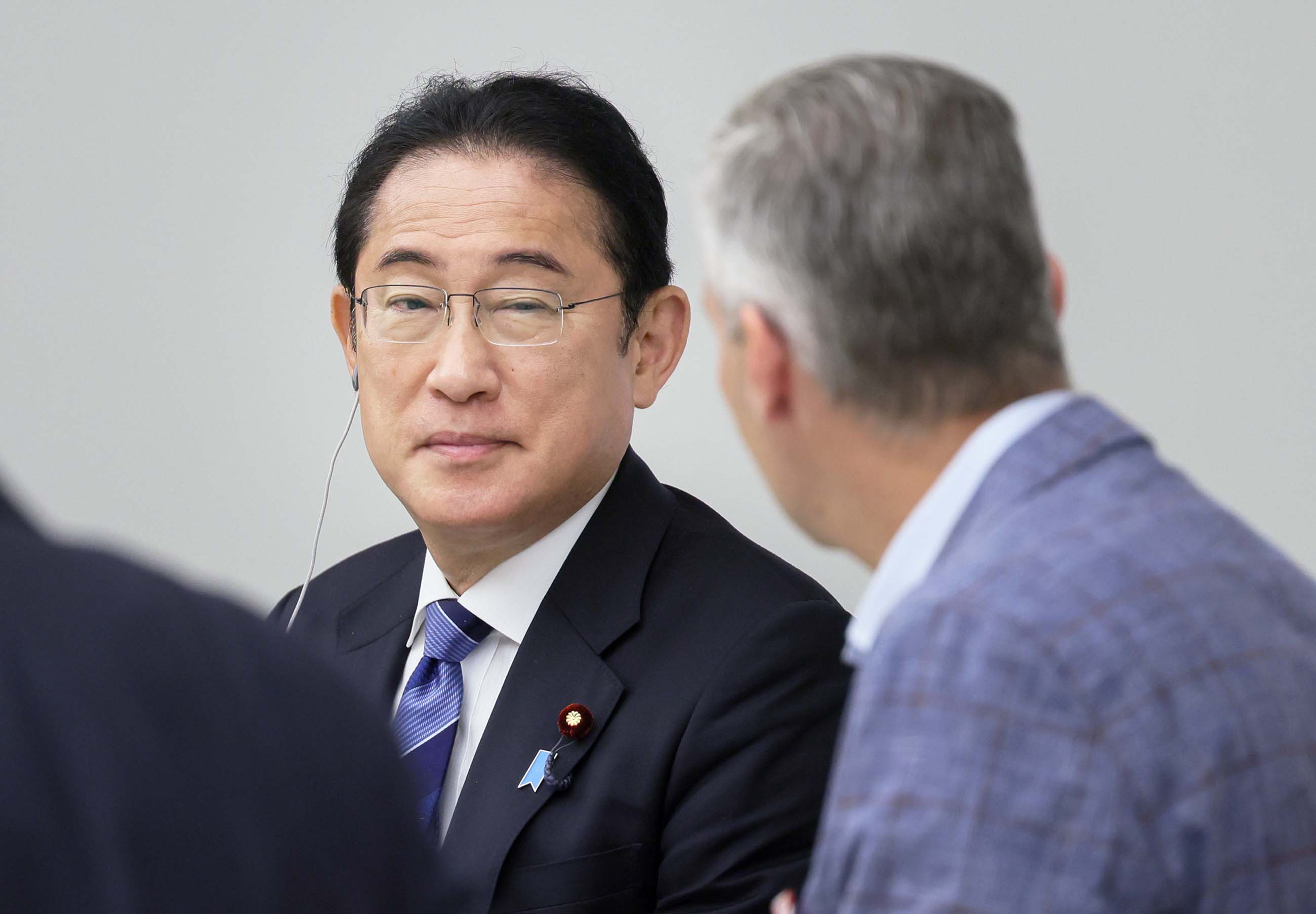GX 2040 Leaders Panel
[Provisional translation]
On July 2, 2024、Prime Minister Kishida attended the first meeting of the GX 2040 Leaders Panel at the Prime Minister’s Office.
At the meeting, the participants exchanged views.
Following the discussions, Prime Minister Kishida said:
“I would like to offer my heartfelt appreciation to the participants for engaging in the lively and informative discussion today. Let me briefly reiterate the importance of the GX Leaders Panel by noting that we are in an age when the strength of a nation largely depends on its future energy strategies. While dealing with the uncertainty of technological innovation, we must come up with comprehensive national strategies to figure out an optimized combination of decarbonatization, security and necessary cost to achieve them.
From this perspective, we decided to first conduct intensive exchanges sometime this summer, regarding views among business leaders on the frontline of industrial innovation and experts who are visionary on both energy and technology, along with relevant Cabinet members, including me. This is the objective of the GX Leaders Panel.
In the first meeting today, the participants offered their views from the viewpoints of both GX and DX. Following today’s discussion, I would like to ask Minister Saito in charge of DX to further examine the following three items in cooperation with other relevant ministers.
Firstly, we must work on the acceleration of investment in power generation. At a time when AI serves as a game changer of the entire industry, ensuring investment in mega data centers and supply of cutting-edge semiconductors has a significant impact on a nation’s strength of economic growth. The procurement of decarbonized power sources necessary for data centers and the production of semiconductors, as well as flexible investment in power transmission networks, will contribute to the growth of the entire economy with an impact exceeding the cost multiple times. We will strengthen support measures for power investment both institutionally and financially, including through the restructuring and strengthening of the system.
Secondly, we need to address investment risks. Future prospects for power demand will fluctuate in a significant manner, depending on the upcoming development of decarbonization and the technology for AI and devices. It has been pointed out that, depending on technological trends, we may face a risk that a large amount of investment in infrastructure, such as in the LNG (liquefied natural gas) supply chain, will become stranded assets, making companies around the world hesitant to make new investments.
As we gradually promote zero-emission thermal power generation using hydrogen or hydrogen derivatives, such as ammonia and e-methane, we will be able to flexibly respond to such risks in an effective manner. We will accelerate our efforts toward zero-emission thermal power generation in cooperation with other Asian countries.
Thirdly, we will accelerate the implementation of technologies in which Japan has an advantage. Examples include film-type perovskite solar cells made from iodine, a chemical element of which Japan has one of the world’s largest resources; photonics-electronics convergence technologies for information processing, which are 100 times more energy efficient than those for existing electronic devices; and innovative decarbonization technologies in the materials industry. In addition, we will accelerate the implementation of other technologies for which Japan has played a leading role with an advantage.
We also have seen many other interesting issues raised today. We will take them seriously and continue to give them in-depth consideration. I would like to repeat my heartfelt appreciation for the valuable insights we received today and sincerely hope for your continued cooperation in the future. Thank you very much.”
